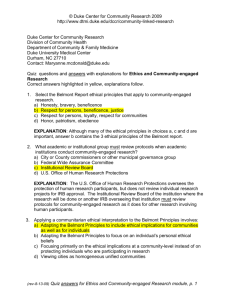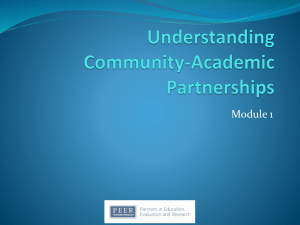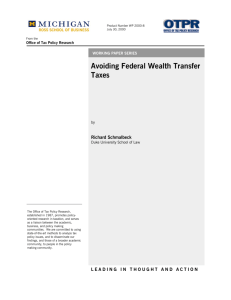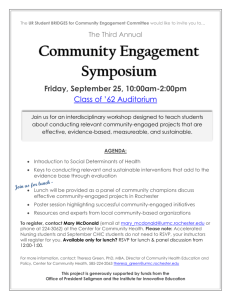Engaging Community and Practice To Improve Healthcare
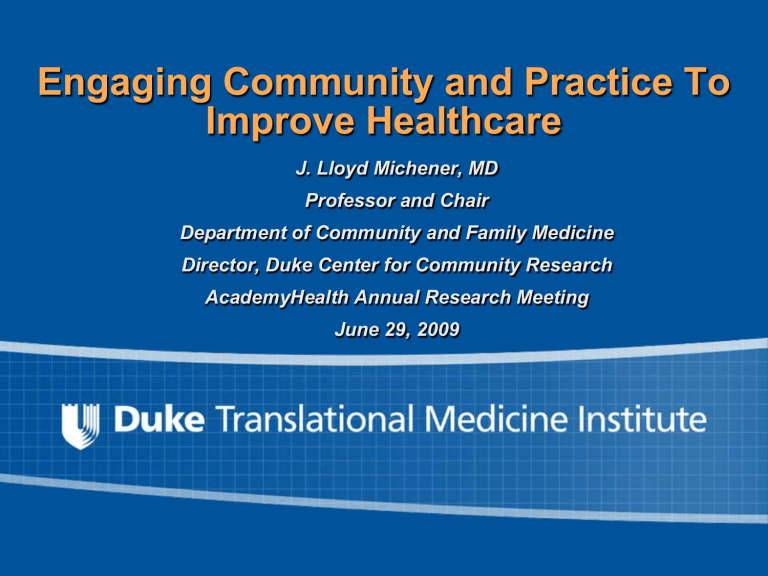
Engaging Community and Practice To
Improve Healthcare
J. Lloyd Michener, MD
Professor and Chair
Department of Community and Family Medicine
Director, Duke Center for Community Research
AcademyHealth Annual Research Meeting
June 29, 2009
The Duke Center for Community Research (DCCR)
Provide support to the Durham community, practices, and researchers for community-engaged research;
Provide training for researchers and trainees in community engagement;
Measure the impact of innovative, community-engaged research on the improvement of community health.
DCCR Training and Liaison Center
Train and prepare researchers and learners to work successfully with communities
Electronic training modules –
— 2,664 Duke researchers and trainees
— Duke IRB, AAMC MedEdPortal, Citi (?)
On-site training programs
Modules in Community Engagement in Research are under development
Community-Engaged Service Learning
— 544 Trained, 139 Community Engaged
Projects
DCCR Training and Liaison Center
Assisted with the development and submission of 30 community-engaged grants.
Implemented an institutional approval and tracking system to document community-engagement activities, as directed by the health system policy delineating required pre-service training and activity approval.
91community health activities have been approved to date.
DCCR faculty and staff serve on 14 community committees
Developed DCCR, CFM, PC SBR Integrated Structure to support researchers in Community-Engaged research.
DCCR specific plan developed with Library resources and available to both researchers and community members.
Requirements:
An interdisciplinary Duke-Durham Team
Clear identification of a relevant health issue and population
Description of an alternative model of service/care
Use of Institutional Resources
Financial Model
Evaluation Plan
Dissemination Plan
By the numbers…
22 Duke-Durham teams submitted Stage I Brief
Proposals
413 team members –
237 representing Duke and
176 community partners, representing 90 community agencies/organizations and businesses.
19 Duke-Durham teams were selected to move to Stage
II, all are receiving technical assistance from DCCR
Up to 10 teams will be selected to proceed to Stage 3 in
April 2009.
Stage 2 applications require that:
Teams select Co-team Leaders from Duke and the community.
Teams identify a project manager.
Teams propose, describe, and present evidence for an innovative model of care (i.e., changes in the structure or function of a service, system, or care delivery setting).
Teams detail how community partnerships will be central to the planning process.
Finalists
Life stage
1. Maternal/Fetal
Health
2. Adolescent Health
3. Seniors’ Health
• “Hard”
4. Cardiovascular
5. Cancer screening/survivors
6. Asthma/COPD
Behaviors
7. Substance abuse/pain management
• Medical/behavioral
8. Obesity
9. Diabetes
10. STDs
